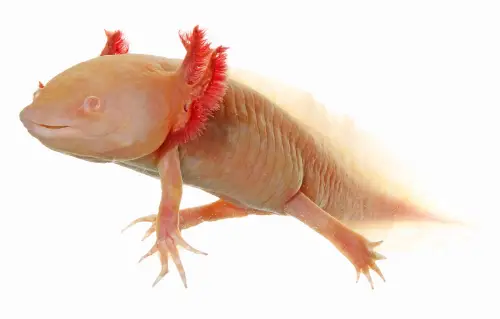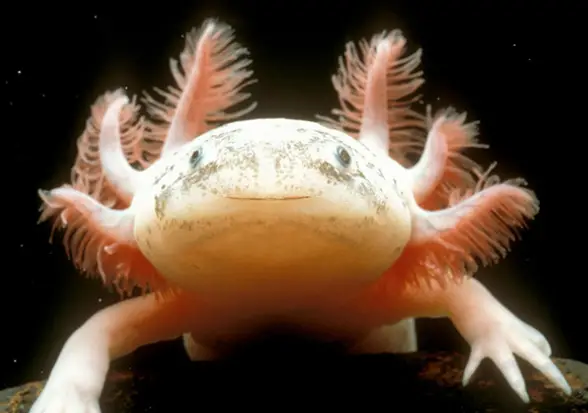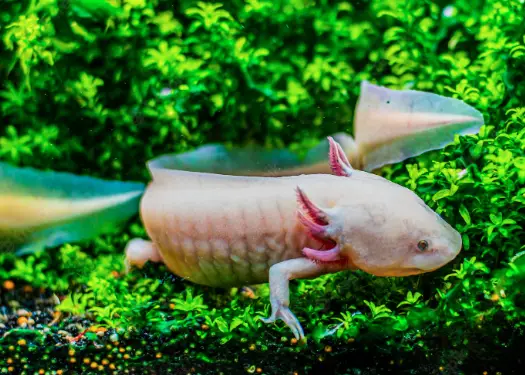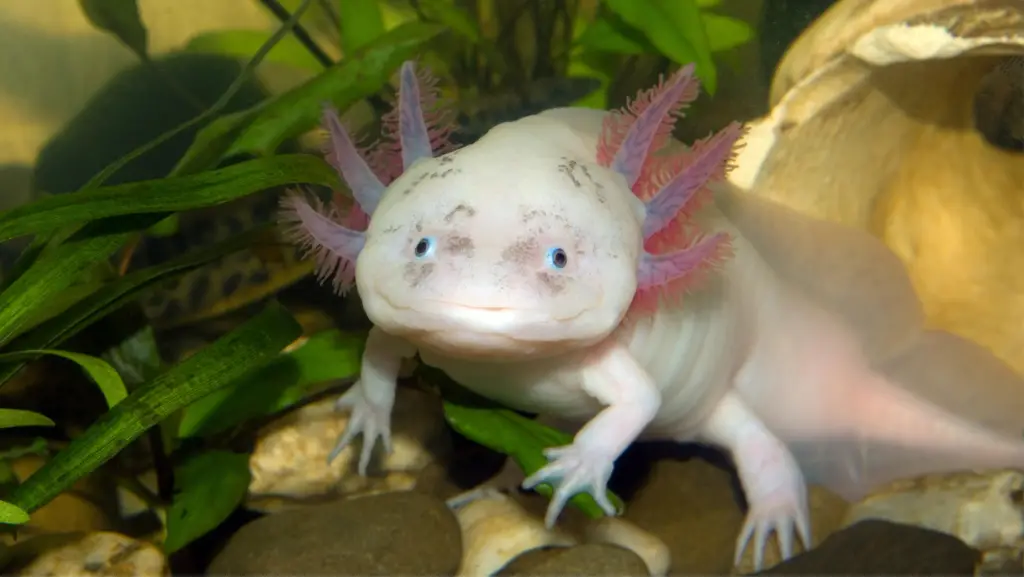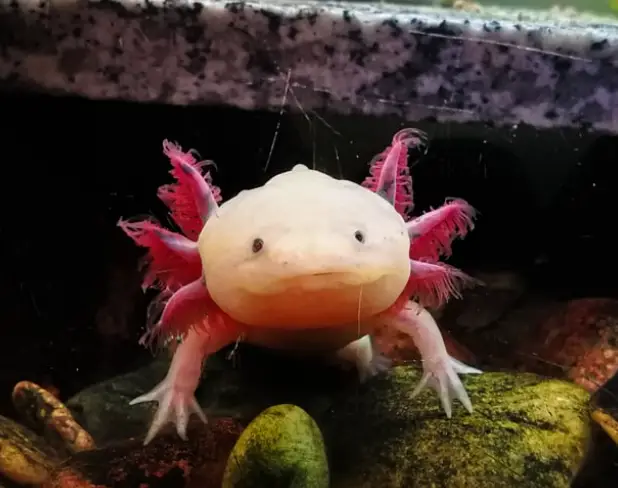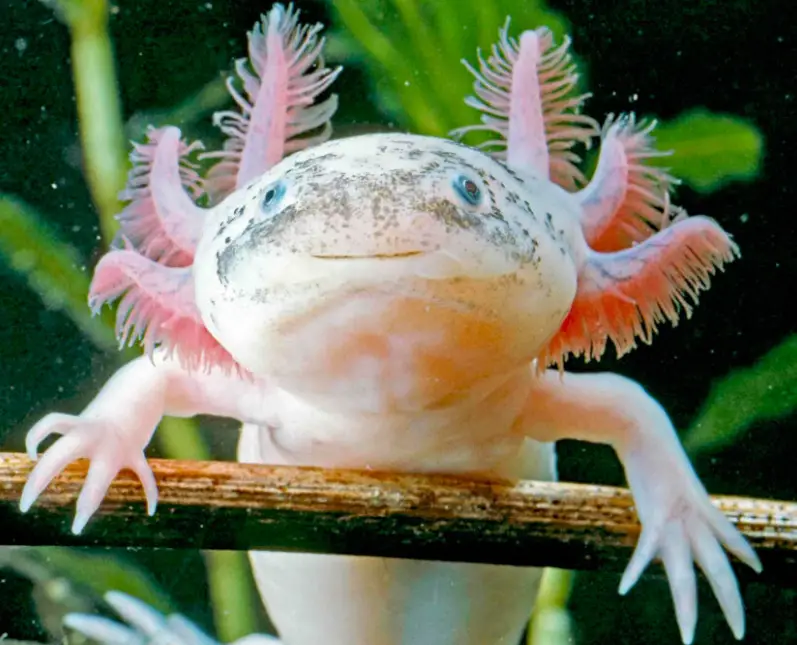Axolotls, also known as “Mexican walking fish,” are a unique and fascinating species of amphibian that are highly sought after by pet owners and researchers alike. One of the most important aspects of caring for axolotls is ensuring they are properly fed. Baby axolotls, in particular, have specific dietary needs that must be met in order to ensure their growth and development.
In this article, we will delve into the different types of food that baby axolotls can eat, as well as the best feeding practices to ensure they thrive. Whether you are a new axolotl owner or an experienced breeder, this information is essential for the proper care of your baby axolotls.
Nutritional Needs Of Baby Axolotls
Baby axolotls, also known as larvae, have specific nutritional needs that are different from adult axolotls. They require a diet high in protein, as they are in a growth phase and need to build strong muscles and bones. They also need a diet that is rich in vitamins and minerals, such as calcium and Vitamin D, to support their overall health and development.
Some of the best food options for baby axolotls include:
- Live brine shrimp: These small crustaceans are high in protein and provide essential amino acids for growth and development.
- Live black worms: These worms are also high in protein and are an excellent source of essential fatty acids.
- Bloodworms: These worms are a great source of protein and are also high in iron, which is important for healthy blood formation.
- Baby fish: Small fish, such as guppies or daphnia, can also be fed to baby axolotls. They are high in protein and provide essential fatty acids and vitamins.
It is important to note that baby axolotls should not be fed adult axolotl food as it does not contain the necessary nutrients for their growth. Additionally, it is important to vary the diet and not rely on one type of food. This will ensure that the baby axolotls receive a balanced diet and all the necessary nutrients for their growth and development.
How To Feed Baby Axolotl
- Start by purchasing appropriate food for your axolotl. They are carnivorous and can be fed a variety of foods such as worms, brine shrimp, bloodworms, and small pieces of fish or meat.
- Thoroughly rinse the food before feeding it to the axolotl to remove any dirt or debris.
- Use a feeding tong or small spoon to place the food in the tank. Avoid overfeeding as this can lead to poor water quality and health issues for the axolotl.
- Feed the axolotl small amounts of food two to three times a day. Babies should be fed more often than adults.
- Observe the axolotl to ensure that it is eating and digesting the food properly.
- Keep an eye out for any signs of poor health or lack of appetite. Consult a veterinarian if you have any concerns.
- Remember to regularly clean the tank to maintain good water quality and to remove any uneaten food.
- Lastly, be sure to always keep the temperature and pH level of the water in the tank stable. Axolotls require a specific environment to thrive.
Feeding Techniques
- Start with small pieces of food: Baby axolotls are very small and have delicate digestive systems, so it’s important to start with small pieces of food that are easy for them to digest.
- Use live or frozen food: Baby axolotls prefer live or frozen food, such as brine shrimp or bloodworms, as they are more likely to be attracted to these types of food.
- Feed multiple times a day: Baby axolotls have small stomachs, so it’s important to feed them multiple times a day in small amounts to ensure they are getting enough to eat.
- Avoid overfeeding: Overfeeding can cause health issues for baby axolotls, such as constipation or bloating. Only give them what they can eat in a few minutes.
- Watch for signs of stress: Baby axolotls can be sensitive to changes in their environment, so it’s important to watch for signs of stress such as rapid breathing or hiding.
- Supplement with vitamins and minerals: Baby axolotls need a balanced diet to grow and thrive, so it’s important to supplement their diet with vitamins and minerals to ensure they are getting all the nutrients they need.
Conclusion
In conclusion, baby axolotls are carnivorous and should be fed a diet consisting primarily of live or frozen food such as brine shrimp, black worms, or bloodworms. It is important to ensure that their diet is varied and that they are fed small, frequent meals to prevent overfeeding. It is also crucial to monitor their growth and adjust their feeding schedule accordingly to ensure that they are healthy and thriving. Overall, proper feeding is essential for the growth and development of baby axolotls.
